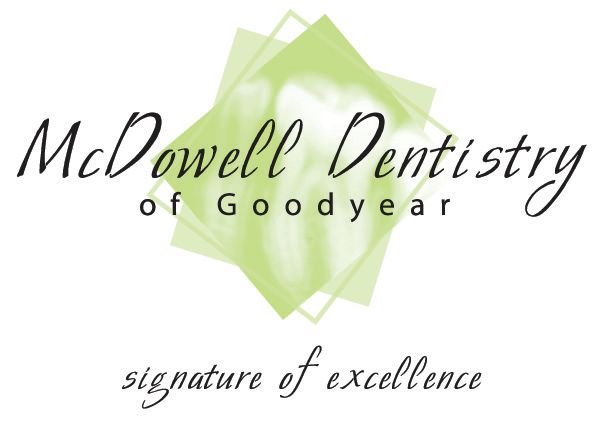TMJ/TMD/Sleep Apnea
TMJ/TMD/Sleep Apnea

McDowell Dentistry of Goodyear provides comprehensive care for patients experiencing temporomandibular joint (TMJ) disorders and orofacial pain through our specialized approach in orofacial medicine. TMJ disorders can cause discomfort, pain, and limited jaw movement, impacting daily activities and overall quality of life. Orofacial medicine focuses on diagnosing and treating conditions that affect the mouth, jaws, face, and neck, including TMJ disorders, facial pain, and headaches.
Specializing in Orofacial Pain & Oral Medicine
Temporomandibular Joint (TMJ) is the hinge joint that connects the lower jaw to the temporal bone of the skull.
Temporomandibular disorders (TMD) occur as a result of problems with the jaw joint, and surrounding facial muscles that control chewing and moving the jaw.
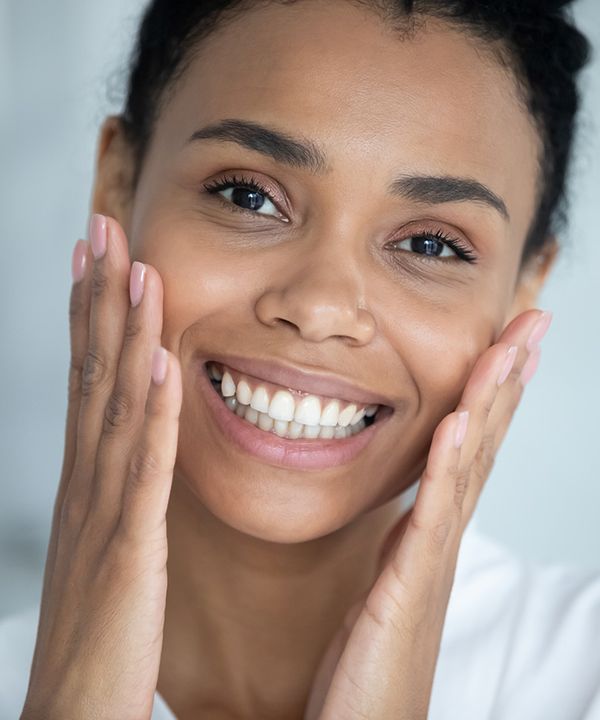
Possible Causes:
Injury to the jaw, temporomandibular joint, or muscles of the head and neck such as from a heavy blow or whiplash
Grinding or clenching the teeth
Dislocation of the soft cushion or disc between the ball and socket
Presence of osteoarthritis or rheumatoid arthritis in the TMJ
Stress, which can cause a person to tighten facial and jaw muscles or clench the teeth
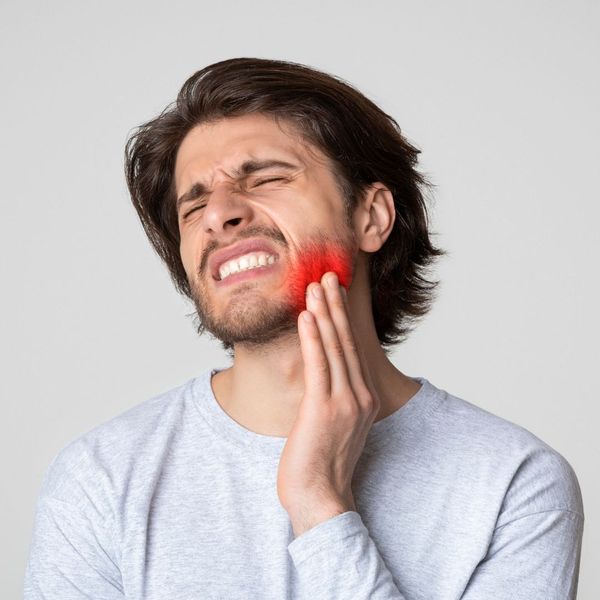
Possible Symptoms:
Pain or tenderness in the face, jaw joint area, neck and shoulders, and in or around the ear when you chew, speak or open your mouth wide
Limited ability to open the mouth very wide
Jaws that get "stuck" or "lock" in the open- or closed-mouth position
Clicking, popping, or grating sounds in the jaw joint when opening or closing the mouth (which may or may not be accompanied by pain)
A tired feeling in the face
Difficulty chewing or a sudden uncomfortable bite as if the upper and lower teeth are not fitting together properly
Swelling on the side of the face
Toothaches, headaches, neck aches, dizziness, earaches and hearing problems.
Possible Treatments:
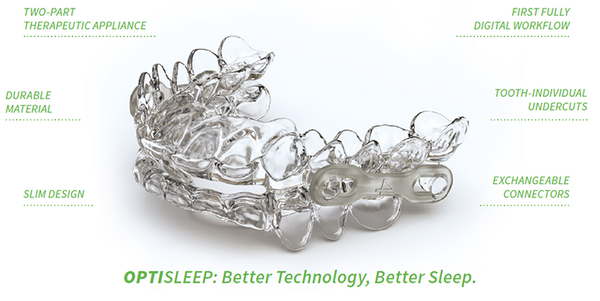
Opti-sleep
Opti-sleep, a revolutionary solution offered at McDowell Dentistry, is a custom-designed oral appliance tailored to treat sleep apnea and snoring. This innovative device is worn comfortably during sleep to help keep the airway open, allowing for improved breathing and a restful night's sleep. Opti-sleep is crafted with precision to ensure a perfect fit and optimal effectiveness in reducing sleep apnea symptoms.
At McDowell Dentistry, our experienced team specializes in providing personalized Opti-sleep appliances to help patients experience better sleep quality and overall health. Say goodbye to sleepless nights and hello to rejuvenating sleep with Opti-sleep from McDowell Dentistry.
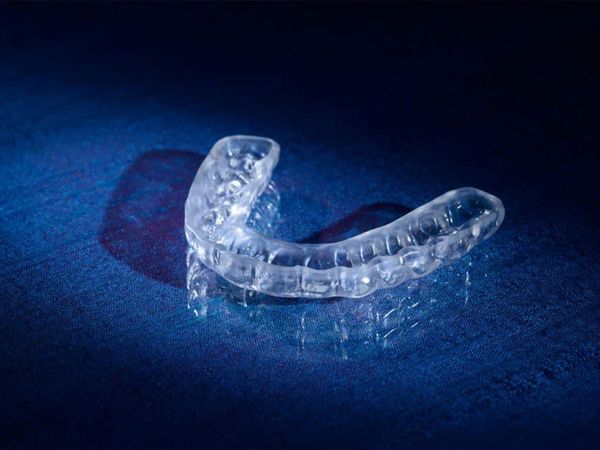
Occlusal Guard
An Occlusal Guard is a custom-made oral appliance designed to protect your teeth from grinding and clenching during sleep, known as bruxism. This durable and comfortable guard is worn over your teeth to prevent excessive wear, fractures, and other damage caused by grinding. By using an Occlusal Guard, patients can experience relief from jaw pain, headaches, and other symptoms associated with bruxism.
At McDowell Dentistry, our skilled team creates personalized Occlusal Guards to provide patients with a comfortable and effective solution for managing bruxism. Invest in your oral health and quality of life by considering an Occlusal Guard from McDowell Dentistry.
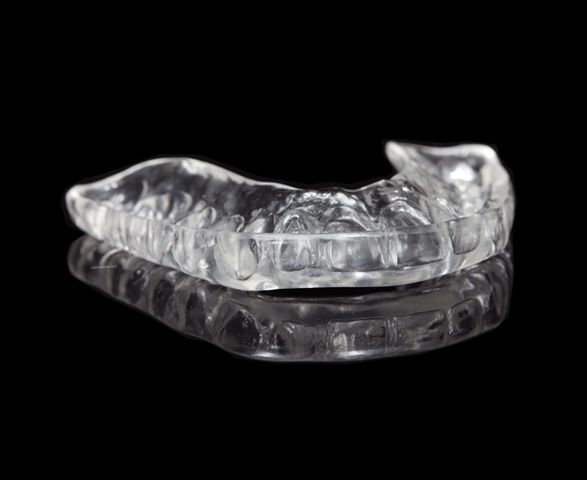
Splint
A splint is a custom-designed oral appliance used to treat temporomandibular joint (TMJ) disorders and related jaw pain. This specialized splint is crafted to fit comfortably in the mouth and helps alleviate symptoms such as jaw discomfort, headaches, and facial pain. By wearing a splint, patients can experience relief from TMJ-related issues and improve their jaw function.
At McDowell Dentistry, our experienced professionals specialize in providing personalized splints to address individual patient needs effectively. Say goodbye to jaw pain and hello to increased comfort and functionality with a splint from McDowell Dentistry.

Our Holistic Approach
Our experienced team at McDowell Dentistry of Goodyear takes a holistic approach to TMJ/TMD management, combining advanced dental therapies with orofacial medicine techniques to provide personalized treatment plans tailored to each patient's needs. By addressing the underlying causes of TMJ disorders, such as jaw misalignment, muscle tension, or bite issues, we aim to alleviate pain, restore jaw function, and improve overall oral health.

Why Choose Us
Choosing us for TMJ/TMD and orofacial medicine care means gaining access to compassionate and comprehensive treatments that focus on long-term solutions and patient education. Our team consists of skilled dental professionals proficient in the latest diagnostic tools and treatment modalities for TMJ disorders and orofacial pain, ensuring accurate assessments and effective interventions.

Our Patient-Centric Approach
Additionally, we offer a patient-centered approach, working closely with each individual to develop customized treatment plans that address their unique symptoms and goals. Empowering patients to take an active role in their oral health and well-being is a core value at McDowell Dentistry of Goodyear. Experience the difference our expertise in TMJ/TMD and orofacial medicine can make in managing symptoms and improving quality of life.
Frequently Asked Questions
TMJ disorders (TMD) and sleep apnea are common yet often misunderstood conditions that can significantly affect daily life and overall health. Many patients experience symptoms like jaw pain, headaches, and fatigue without realizing they could be linked to these disorders. Below, we’ve answered some frequently asked questions to help you better understand the complexities of TMJ, TMD, and sleep apnea, as well as the potential impact on your well-being."

What are the long-term effects of untreated TMD?
Untreated TMD can lead to chronic pain, difficulty eating, jaw locking, headaches, and even damage to the teeth from grinding or clenching.

How does stress contribute to TMJ disorders?
Stress can cause increased muscle tension in the jaw, leading to clenching or grinding, which may worsen or trigger TMJ disorders.

Can TMD cause ear-related symptoms?
Yes, TMD is often associated with earaches, ringing in the ears (tinnitus), or a sensation of fullness due to its proximity to the ear canal.

What is the connection between sleep apnea and daytime fatigue?
Sleep apnea disrupts normal sleep patterns by causing repeated pauses in breathing, leading to poor sleep quality and daytime fatigue.

Is there a link between teeth grinding and sleep apnea?
Yes, many people with sleep apnea grind their teeth at night, as the body’s response to interrupted breathing can lead to clenching and grinding.

Can jaw misalignment contribute to sleep apnea?
Jaw misalignment can narrow the airway, making it more difficult to breathe while sleeping, which can contribute to obstructive sleep apnea.

How can TMD affect daily activities?
TMD can make everyday tasks like chewing, talking, and yawning painful, potentially leading to reduced quality of life.

What factors increase the risk of developing TMJ disorders?
Risk factors include jaw injury, arthritis, poor posture, stress, and habits like nail-biting or chewing gum excessively.

Can TMD be hereditary?
While there is no direct genetic link, some conditions that increase the likelihood of developing TMD, such as arthritis or bite misalignment, can run in families.

How does sleep apnea affect mental health?
Untreated sleep apnea can lead to mood disorders, including anxiety and depression, due to chronic fatigue and lack of restorative sleep.
CONTACT US
Schedule a consultation today to discover how our specialized approach can help you find relief and enhance your oral health and overall wellness. Choose us for advanced treatments, comprehensive care, and a commitment to patient-centered excellence.
